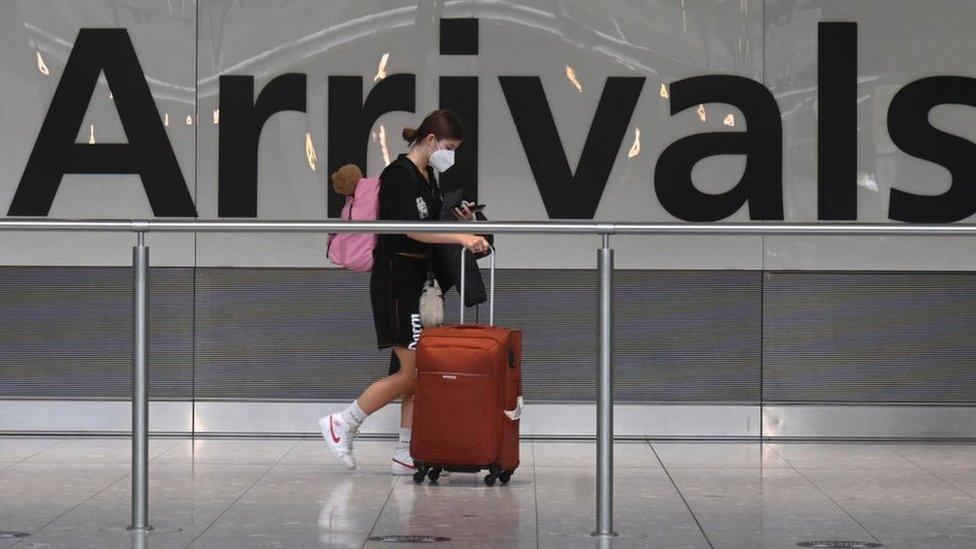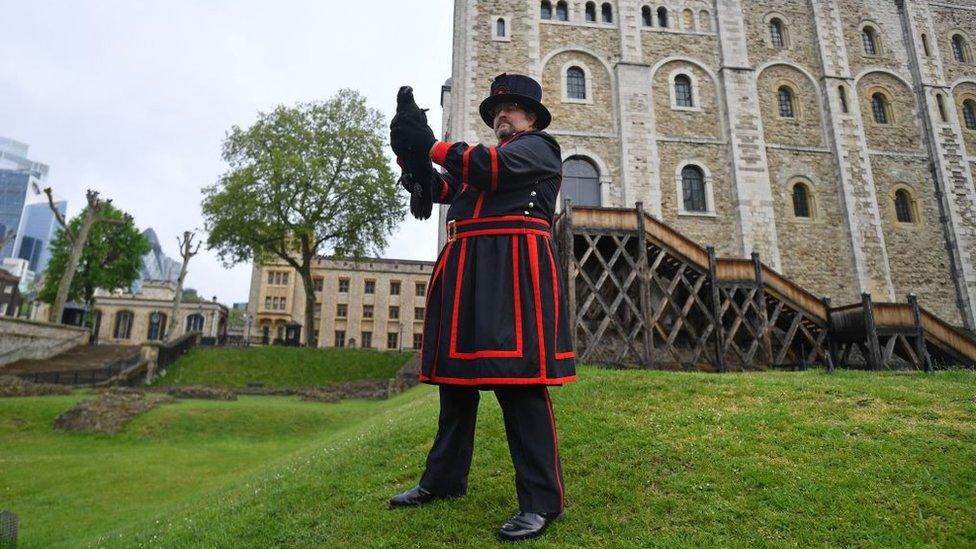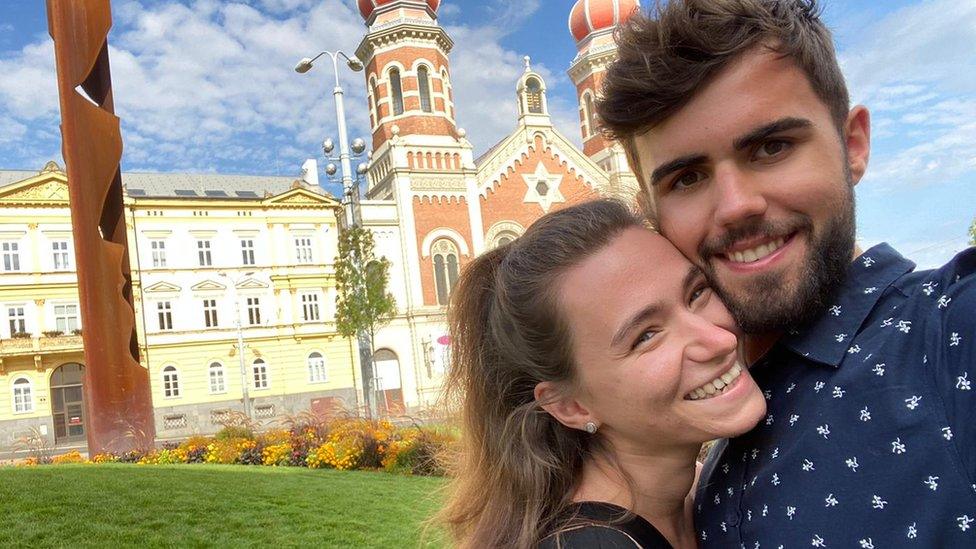Airline bosses demand UK-US travel corridor
- Published
- comments

Airline bosses are urging the US and UK to allow travel to restart ahead of the G7 meeting in Cornwall.
The bosses of all airlines that offer UK-US flights and Heathrow Airport issued a joint call for a trans-Atlantic travel "corridor" on Monday.
The group said it would be "essential to igniting economic recovery" in a statement.
Nearly all passengers from the UK are currently banned from travelling to the US.
Under a presidential decree introduced last March, non-US citizens who have been in the UK in the last 14 days cannot enter the country unless a specific exemption applies., external
Meanwhile, travellers from the US to the UK must self-isolate for 10 days on arrival as the country is on the "amber list"., external
But airline bosses argued on Monday that because of the speed of the vaccine roll-out in both countries, travel should be allowed to resume.

The Tower of London is the most popular tourist destination for visitors to the UK, according to VisitBritain.
Shai Weiss, the boss of Virgin Atlantic, said: "There is no reason for the US to be absent from the UK green list. This overly cautious approach fails to reap the benefits of the successful vaccination programmes in both the UK and the US."
Adding the US to the green list would remove the need for quarantine on return to the UK. Passengers would, however, still need to have proof of a negative Covid test result on departure.
"Customers, families and businesses need to book and travel with confidence. After 15 months of restrictions, the time to act is now," Mr Weiss added.
Economic 'engine'
John Holland-Kaye, chief executive of Heathrow Airport, said: "Connectivity between the UK and the US is one of the great engines of the global economy."
In a statement, the group estimated that UK businesses are losing £23m each day that trans-Atlantic trade links remain closed
"The scientific data shows transatlantic travel and trade can be reopened safely and every day that policymakers delay puts jobs, livelihoods and the economic chances of hardworking folks across our countries at risk unnecessarily," said Mr Holland-Kaye.


In happier times, London to New York was one of the busiest aviation corridors in the world, with some 30 flights a day between the two cities.
And because it was so popular with business travellers, it was also highly profitable. In the year to April 2019, British Airways alone earned more than $1bn (£710m) from the route.
You can see why the airlines involved are little short of desperate to get transatlantic traffic back up and running.
They have been battered by the crisis - and are desperate to generate revenue.
Heathrow Airport, too, needs those flights, which bring in income from airport charges, as well as a flow of affluent passengers through its terminals.
For a carrier like Virgin Atlantic, wholly focused on long distance services, the stakes are even higher. In normal circumstances, transatlantic routes make up 70% of its network.
It may have restructured heavily to see out the immediate crisis, but in the longer term the airline's survival remains at stake.
Even if business traffic never gets back to its former levels, the chances are transatlantic routes will remain highly profitable - and for the beleaguered airlines, right now every penny, or every cent, really counts.

Doug Parker, the chief executive and chairman of American Airlines, also said reopening travel between the two countries a "critical next step" in the travel industry and global economy's recovery.
The industry reacted with dismay when no more countries were added to the UK's green list and Portugal was relegated to amber last week, with the rule change taking effect from 04:00 on Tuesday.
Critics warned of a loss of jobs and confidence, while Easyjet said the government had torn up its own rules.
Transport Secretary Grant Shapps said at the time: "The public has always known travel will be different this year and we must continue to take a cautious approach to reopening international travel in a way that protects public health and the vaccine rollout."
- Published11 February 2022

- Published4 June 2021
